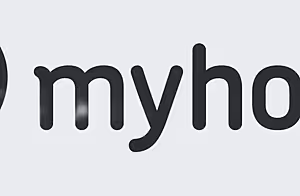
It has been dominated by controversy, confusion and resistance. Call it what you may it is a tax by another name, but what is the reality of the new household charge, who has to pay it and how and what are the consequences for non – compliance?
John Leahy of www.irishlandlord.com seeks to bring some clarity to one of the burning and most controversial issues of early 2012.
Is the household charge the same as the (NPPR) Non Principle Private Residence charge of €200?
Unfortunately not, the new household charge is a separate charge that is payable on top of the existing €200 charge.
Who has to pay, the landlord or the tenant?
It is the responsibility of the owner of a residential property to pay the charge. This means that tenants living in rented accommodation are not liable for the charge. The owner of the property (the landlord) is responsible for the payment of the levy. This is in addition to the separate €200 NPPR levy already payable by landlords.
If a landlord owns a property divided into apartments or flats the charge is payable on each individual residential unit. e.g. If a house is divided into three flats, the charge is payable on each flat.
If you own and live in your own home you are liable to pay the charge unless you qualify for a waiver (see below)
I live in a ghost estate do I have to pay the charge?
It depends, there are some home owners who are not liable to pay the charge:
People in receipt of mortgage interest supplement can apply for a waiver from the charge.
Those living in some ghost estates may be exempt from the charge. A word of caution, only certain estates come under this criteria. It is important to check the official list of estates on www.hosueholdcharge.ie if your estate is not on the list you are liable for the charge.
If you believe you qualify for a waiver you must still register your property and apply for a waiver.
Exceptions to the charge
There are a small number of property types that are exempt from the charge these include:
- Mobile homes
- Properties which are owned by government departments or the Health Service Executive or
- Properties owned by local authorities or voluntary housing bodies.
How do I pay the charge?
The charge must be paid on a self-assessment basis; this means that you will not receive a letter requesting payment. It the property owner’s responsibility to register for the charge and to pay it before the deadline of 31st March 2012.
The charge must be paid in one lump sum unless you previously registered to pay by direct debit – the deadline for this option expired on 29th February 2012.
The charge can be paid on-line at www.householdcharge.ie or by completing a registration form, which is available in libraries and county council offices and submitting the payment and completed form to your county council office.
What if I don’t pay?
Those who do not pay the charge will be liable to interest and penalties as per the table below:
| Delay in payment | Late payment fee |
| Up to 6 months after due date | 10% of the amount outstanding |
| Between 6 and 12 months after due date | 20% of the amount outstanding |
| Over 12 months after due date | 30% of the amount outstanding |
The future outlook
Property taxes are commonplace in most European countries and it is generally accepted that the current flat rate household charge of €100 is merely the first step on the journey towards the introduction of some form of property tax over the coming years.






